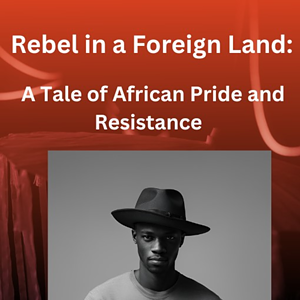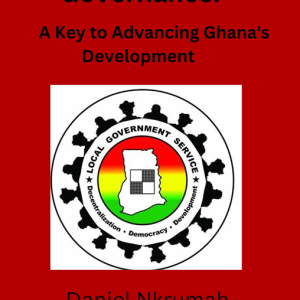Asante Tradition, Culture and Values in Ghana
Introduction
The Asante are a prominent ethnic group in West Africa, specifically the nation of Ghana. Asante history and culture have contributed significantly to Ghana’s identity, and their traditions, values and beliefs continue to shape the lives of its people today. This book seeks to introduce the rich tradition, culture, and values of the Asante people.
Through an exploration of their historical context, literature, art, oral histories and customs, this book highlights aspects such as traditional roles within the family and society at large; cultural practices that form part of everyday life; artifacts that represent their proud heritage; legends that guide their worldview; and rituals that cement shared heritage. In exploring these elements together with traditional spiritual beliefs, political principles and social ethics, this book will provide readers with an understanding of what it means to be an Asante person.
Objectives:
- Acquire in-depth knowledge of Asante tradition, culture, and values in Ghana.
- Develop innovative approaches to teaching the significance of these traditions and values to youth in Ghanaian communities.
- Work with local stakeholders to ensure the preservation and celebratory promotion of traditional Asante customs.
- Identify opportunities for cultural exchange programs between southwest African nations and Ghanaian communities.
- Foster an appreciation of traditional Asante beliefs through creative, engaging activities for all ages.
Table of Contents
Chapter One: Introduction to Asante History and Heritage
-Overview of the Asante Kingdom
-Overview of the Traditional Culture and Values of Asantes
– History Behind Formation & Development of the Asante People & Empire
-Linguistics
-Traditional governance systems
-What comprises an “Asante” identity today.
– Significance of these traditions and values to youth in Ghanaian communities.
– Local stakeholders to ensure the preservation and celebratory promotion of traditional Asante customs.
Chapter Two: Traditional Religion & Worldview Practices among Asante Peoples
-Overview of Asante Culture & Society
-History of Religion & Traditional Values
-Traditional Beliefs and Practices
-Religion & Worldview
-Spiritual Beings & Deities
-Food & Rituals
Chapter Three: Family Structure
-Traditional family structures within the Asante tribes.
-Kinship relations
-Gender roles
-Marriage practices and inheritance rights
-Important festivals that mark various stages of life within a tribal family structure.
Chapter Four: Rituals & Festivals
-Delves into traditional rituals practiced by the various tribal societies comprising present day Ghanaian Asante.
-Ancestor veneration ceremonies
-Puberty rites
-Funerary traditions
-Traditional wedding ceremonies
-Funeral processes
-Seasonal harvest celebrations
-Birth
-Naming ceremonies
Social Customs and Values
– Exploring the Historical Evolution of Asante Culture: A Study from Pre-Colonial Times into Post-Independence Days
-Social stratification
Chapter Five : Cultural Heritage and Artistic Expression
– Clothing & Jewellery
– Architecture
-Overview on arts and crafts commonly practiced among various Asante societies
-Pottery making
-Cloth weaving
-Kente textile production
-Wood carving
-Metal smithing
-Soapstone sculpting
-Blacksmithing
-Drumming
-Song composition
-Dance forms
-Storytelling along with their unique cultural meanings for each tribe/society .
Chapter Six : Economic Systems
-Economic systems amongst ethnic groups within present-day Ghana including trading networks (e.g., inland trading roads)
-Farming practices involving cash crops (e.g., cocoa) animal husbandry practices & herding techniques, among others .
Unit Seven : Political Structures
-Political systems prevalent amongst ethnic groups in present-day Ghana
-Leadership structures & decision-making processes (e .g . consensus building processes )
-Law enforcement mechanisms
-Dispute resolution methods
Captor Eight : Social Movements and worldview
– Christianity in the Asante Kingdom
– Value System & Worldview
– Respect for Elders & Ancestors
– Kinship Ties & Loyalty to Community
– Egalitarianism & Political Philosophy
– The Impact of Social Movements on Tribal Communities in Contemporary Ghana
-Indigenous initiatives which reflect upon & are reflective of, their prevailing beliefs & values today
-Improving social justice contexts for future generations .
-Interactions between Asantes & Other Ethnic Groups in Modern Times
-Strategies for Promoting Inter-Ethnic Unity within Contemporary Society
– Foster an appreciation of traditional Asante beliefs through creative, engaging activities for all ages.
– Contemporary Applications of Traditional Values within Ghanaian Society




Reviews
There are no reviews yet.